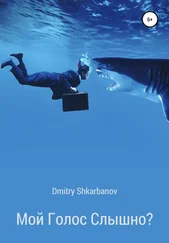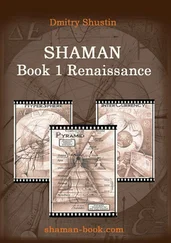The plan was simple, precise, impeccable. But Denis Mikhailovich had a tense, agitated kind of feeling and his heart was pounding as if he was eighteen years old again, advancing into that mountain village, into his first battle. The colonel cauterised his sense of alarm with the final glow of his cigarette, threw away the tiny butt, pulled his mask on again and strode forward to catch up with the unit.
The brigade soon came up against the steel hermetic door. They could rest here until the assault began and he could run through the carefully spelled out and memorised roles with the section leaders.
Homer had been right about one thing, the colonel thought to himself with a chuckle. It was pointless trying to take a fortress by storm, if you could get it opened up for you from the inside, like the Greeks at Troy. And wasn’t it actually Homer who wrote about the Trojan Horse?
Denis Mikhailovich checked his radiation meter: the background level was low, and he pulled off his gas mask. The section leaders did the same, and then so did the other soldiers. That was fine, let them take a breather.
In Polis there were always plenty of people who had struggled to make the journey here from poor, dark, outlying stations, hanging about or wandering through the galleries and halls with their eyes goggling and their jaws hanging open in admiration. And Homer, circling round Borovitskaya, tenderly stroking the elegant columns of Alexander Garden, scrutinising with loving delight the frivolous chandeliers of Arbat that looked like girls’ earrings, didn’t stand out from them in any way.
His heart had caught a presentiment and wouldn’t let go of it: this was the last time he would be in Polis. What was about to happen at Tula in a few hours would cancel out his entire life, and perhaps even cut it short. The old man had decided to do what he had to do. He would let Hunter kill everyone and burn out the station, and then try to kill him. But if the brigadier suspected treachery, he would wring Homer’s neck in an instant. And perhaps the old man would be killed in the assault on Tula. If so, his death would come soon. But if everything went well, afterwards Homer would become a hermit, so that he could fill up all the white pages between the already written opening of the book and the final full stop, which he would insert with the shot into the back of Hunter’s head.
Would he be able to do it? Would he dare? The mere thought of it was enough to set the old man’s hands shaking. But never mind, it would all work out somehow. He didn’t need to think about it now, too much thinking led to doubts.
And thank God he’d sent the girl away! Homer understood now why he had got her mixed up in his reckless adventure, why he had allowed her to walk into the lions’ cage. He’d got carried away, playing the writer, and forgotten that she wasn’t a figment of his imagination.
Homer’s novel would turn out different from the way he had thought of it, it would be about something different. But from the very beginning Homer had attempted to shoulder an impossibly heavy burden. How could all the people be fitted into a single book? Even the crowd through which the old man was walking at the moment would be cramped on a book’s pages. Homer didn’t want to transform his book into a communal grave, with flickering columns of names that dazzled the eyes and bronze letters, behind which it was impossible to glimpse the faces and characters of the fallen.
No, it wouldn’t work. Even his memory, so corroded by the passage of time that it had started springing leaks a long time ago, couldn’t take all these people on board. The pockmarked face of a sweet seller, and the pale, sharp-nosed face of the little girl handing him a cartridge. And her mother’s smile, beaming as bright as the smile of a Madonna, and the lecherous, sticky smile of the soldier walking by. And the harsh wrinkles of the ancient beggars appealing for charity right there, and the laughing wrinkles beside the eyes of a thirty-year-old woman.
Which of them was a rapist, or a money-grubber, or a thief, or a traitor, or a rake, or a prophet, or a righteous man, and which of them still hadn’t found themselves yet – Homer didn’t know all that. It wasn’t revealed to him what the sweet seller was really thinking about when he looked at the little girl, what was really meant by her mother’s smile – the smile of someone else’s wife ignited by the spark of a soldier’s gaze – or how the beggar used to make his living before his legs gave out. And so it wasn’t for Homer to decide who deserved immortal fame and who didn’t.
Six billion people had simply perished: six billion of them! Was it pure chance that only a few tens of thousands had managed to escape?
The engine driver Serov, whose place Nikolai was to have taken a week after the Apocalypse, was a passionate sports fan, who regarded the whole of life as a football match. ‘The whole human race has lost,’ he used to tell Nikolai, ‘but you and I are still running around, haven’t you ever wondered why? It’s because our lives don’t have a final scoreline yet, and the ref’s made us play extra time. And during that time we have to figure out what we’re here for and manage to get everything done, set everything straight, and then take a pass and fly with the ball towards that radiant goalmouth…’ He was a mystic, that Serov. Homer had never asked him if he managed to score that goal, but Serov’s views had certainly convinced Homer that he still needed to set his own personal score in order. And it was from Serov that Homer had acquired the certitude that no one in the Metro was there by accident.
But it wasn’t possible to write about everything!
Should he even carry on trying?
And then, among a thousand unfamiliar faces, the old man saw what he least of all expected to see at that moment.
Leonid took off his jacket and pulled off his sweater, followed by a relatively white T-shirt, which he flung up over his head like a flag and started waving about, taking no notice of the dense swarm of bullets whizzing through the air around him. And something strange happened: the battle trolley started falling back, and still no one opened fire from the frontier post looming up ahead of them.
‘And for that my dear dad would kill me!’ the musician told Sasha after they braked with a ferocious grating sound from full speed to a dead halt right in front of the tank traps.
‘What are you doing? What are we doing?’ Sasha couldn’t catch her breath, she couldn’t understand how they could have survived the chase.
‘We’re surrendering!’ he laughed. ‘This is the entrance to Lenin Library Station, the frontier post of Polis. And you and I are defectors.’
Border guards came running up and took them down off the trolley. When they checked Leonid’s passport they exchanged glances, put away the handcuffs they were holding ready and escorted the girl and the musician into the station. They took them into the watch office and went out, whispering among themselves respectfully, to get their commanding officer.
Leonid, who was sprawling haughtily in a threadbare armchair, immediately jumped up, glanced out of the door and beckoned to Sasha.
‘They’re even worse slackers here than on our line!’ he snorted. ‘There aren’t any guards!’
They slipped out of the room and walked unhurriedly at first, then faster and faster along the passage, finally breaking into a run and holding hands so that the crowd wouldn’t separate them. Their backs soon started itching when they heard the trilling of militiamen’s whistles behind them, but nothing could have been easier than to lose themselves in this huge station. There were ten times as many people here as at Pavelets. Even when Sasha imagined life as it was before the war, while she was taking her stroll on the surface, she hadn’t been able to picture such a huge multitude! And it was almost as bright here as it had been up there. Sasha covered her face with one hand, examining the world through a narrow observation slit between her fingers. Her eyes kept stumbling over things, faces, columns, every one more amazing than the ones that had gone before, and if not for Leonid and his fingers intertwined with hers, she would certainly have stumbled and fallen, completely disoriented. She definitely had to come back here some day, Sasha promised herself. Some day when she had more time.
Читать дальше











